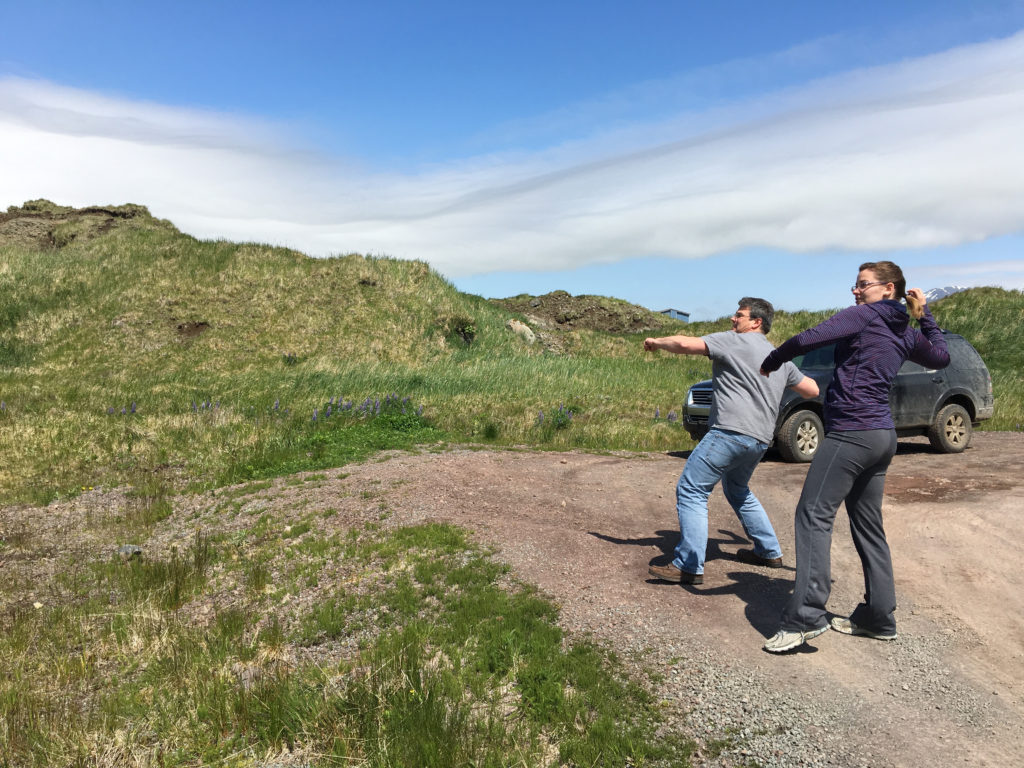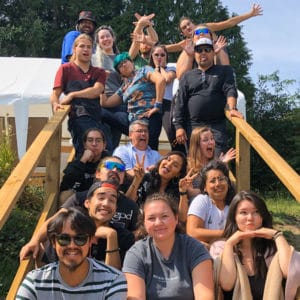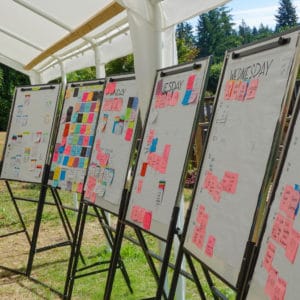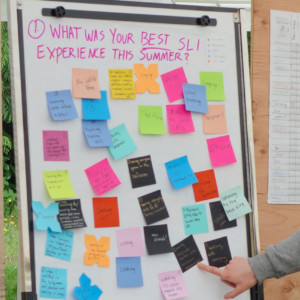
If you don’t use it you’ll lose it. That age-old adage we hear, especially about language learning, means that if you don’t speak the languages you know you will forget them. This has happened to me many times. Growing up in Canada, taking French was mandatory for me in school and I took it all the way up to a first year university level. But then I stopped using it and now I barely remember anything. Same goes for German, which I have half-heartedly attempted to learn several times over the past 10 years. In regards to both of these languages what I remember, or what I don’t remember, falls into two categories. Either I learned how to say something and now don’t remember how to say it, or I learned how to say something and now remember how to say it but not what it means. Sound familiar? That’s probably what happens to most of us with languages we’ve learned. For the first time this summer though I had a different experience with language memory. I remember learning a particular word in chinuk wawa, and I don’t remember the word that I learned or what it means, but I remember the specific environment in which I learned it. Wait, what?!?!
So when I began reviewing chinuk this summer and looked through my hunting book to see what I remembered and what I needed to review one scenario stood out in my head and I told Evan, I remember you teaching me a word but I don’t remember what the word was or what it meant. He laughed and asked what the scenario was. So I told him it was last summer when you showed me how to tie my shoe and took me outside and demonstrated how to throw rocks. Immediately Evan laughed and said, “cagwa”. Exactly the word I had been referring to!!!
Last summer after I had been learning chinuk for a few weeks I began hearing the word “cagwa” and started to track it. I wasn’t entirely sure what it did or meant but I heard it enough that I had a few ideas and felt ready to investigate. Evan and I had some language time planned for before dinner one night and he asked what I wanted to go over and I asked him to set-up “cagwa” for me. I remember going down to the front door and as we put on our shoes Evan started to very slowly and meticulously lace his boots up. As I started to tie up my own shoes Evan said “Weak cagwa” waving away what I was doing then gesturing to his own shoe again said, “cagwa”. I nodded along. Then we went outside and Evan picked up a rock, pointed to the horizon and threw it. “Cagwa”. He handed me a rock. I threw it just the same. “Cagwa”. Then Evan picked up a rock and pretended to fumble it and threw it only a few feet in front of him. “Weak cagwa”. He picked up another rock and threw it properly the same way he had thrown the first one. “Cagwa”. Ahh, I understood “cagwa”. Instead of explaining what the word meant, we did what the word meant.
The WAYK method uses Set Ups, meaning building little scenarios or using props to demonstrate what you’re talking about instead of translating back to your original language. For instance, if you want to learn the word for cup, instead of asking for a translation you get out a real cup and point to it. At the beginning Set Ups are usually quite basic, using only a few props and simple actions, however as you begin to progress in fluency the Set Ups get more abstract and require more complicated arrangements. The situation I remember from last summer falls into the later category, as evidenced by the slightly more complicated set-up.
So what is the benefit of learning this way, if you’re just going to forget anyways? Well I would argue that you are less likely to forget words that you’ve learned this way because it is linked to something so memorable. Considering how much chinuk I learned last summer, and how long I went without speaking it, the amount of language I could recall without any review was impressive, and I assure you, it’s not because I have a phenomenal memory. It’s because of the way I learned it. Memory is improved when we learn something in multiple modes i.e. speaking and moving, hence TQ: Sign Language and TQ: Set Up. For almost everything I learned in chinuk I remember when I learned it, who taught it to me, and what the Set Up was. The fact that these scenarios are so memorable also means that even if you do forget a word chances are that if you explain the Set Up the fluent speaker who taught you will remember, like Evan did in my case. And if they don’t remember based on your explanation then you can quite simply recreate the Set Up and re-hunt the language.
If you don’t use it, you still might lose it, but what matters more is how quickly you can get it back. And if the language is linked to a series of memorable situations that are easy to re-create then I’m willing to bet you’ll pull that language out of your memory archives faster than if it’s long lists of words and translations.
Post authored by Robyn.




